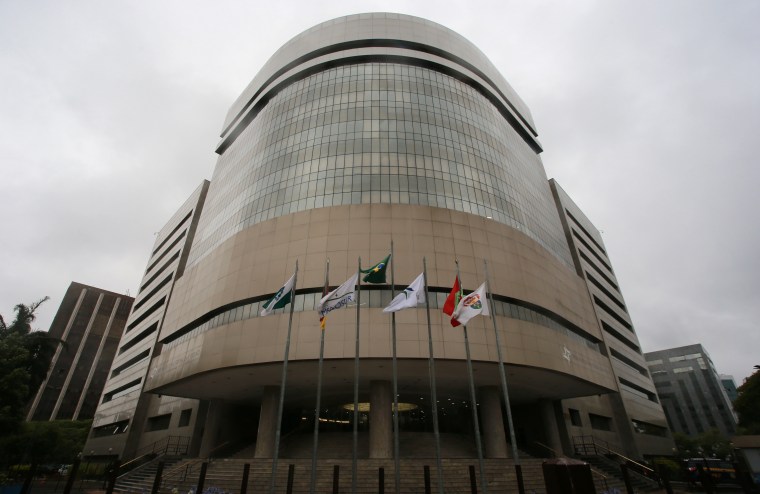Rio de Janeiro, December 23, 2020 – The Committee to Protect Journalists today condemned a ruling by a Brazilian court requiring two local outlets to modify their reporting in response to a lawsuit.
On December 12, Judge Cleni Serly Rauen Vieira, of the Santa Catarina state Court of Justice’s Third Civil Court, ordered independent news websites The Intercept Brasil and ND+, and Schirlei Alves, a freelance journalist who contributed to both outlets, to “rectify” their reporting on a rape trial, according to news reports and the judge’s decision, which CPJ reviewed.
The ruling stemmed from a civil lawsuit filed by Thiago Carriço de Oliveira, the lead prosecutor in that trial, who alleged that the journalist’s reporting at both outlets had defamed him, according to a copy of Oliveira’s petition to the court, which CPJ reviewed.
The judge’s ruling instructed the outlets to add specific language to their reporting, which she provided, and set a daily fine of 1,000 reals (US$190) for each outlet and 200 reals (US$38) for Alves personally if they did not comply within 48 hours.
The judge’s decision states that it is a preliminary ruling, pending a full investigation of the case.
The Intercept Brasil issued a statement on December 20 that they made the changes to the reporting and a video as they were “obliged to make the changes in order to avoid daily fines.” ND+ has also added a disclaimer at the beginning of its article, stating that it had been edited following the court’s ruling.
“Judges are not editors, and their decisions should not interfere with editorial decisions or the right of the press to report freely,” said CPJ Central and South America Program Coordinator Natalie Southwick, in New York. “We condemn the Santa Catarina court’s preliminary ruling in this case affecting The Intercept Brasil and ND+, which reaches far beyond ensuring the right to reply, and could set a horrible precedent.”
Oliveira’s court petition, dated November 26, sought $300,000 reals (US$58,100) in compensation for “moral damages” and the removal of content that the outlets published about the trial, according to his petition documents.
Judge Rudson Marcos, the judge overseeing the rape trial, also filed a civil lawsuit against Alves and both outlets, seeking 450,000 reals (US$87,200) in moral damages and the removal of the same content, according to his petition documents, which CPJ reviewed.
The law firm Savoy & Garay is representing both Marcos and Oliveira, according to court documents reviewed by CPJ.
Oliveira replied to CPJ’s emailed request for comment saying that CPJ should contact his press office, but did not specify how to do so.
In an email sent to CPJ by press officer Ludmila Baldoni, Savoy & Garay said that “the decision does not violate, in any way, freedom of the press,” and that “the press need to be impartial and neutral.” The statement said that the ruling was “a reminder that publishing fake news and manipulating content in the press is far from journalism.”
Santa Catarina Court of Justice press officer Fabrício Severino said in an email to CPJ that the process relating to the case was confidential, and that Judge Vieira would express herself exclusively through the case files. The Third Civil Court did not respond to CPJ’s emailed requests for comment.
The Intercept Brasil’s statement said that the judge’s decision set a “dangerous precedent” and that Vieira did not hear its arguments before requiring the outlet to make changes to the text.
The Brazilian Association of Investigative Journalism (ABRAJI) said in a statement that the judge’s decision has “no precedents in the Brazilian justice system and is a serious violation of freedom of the press.”
